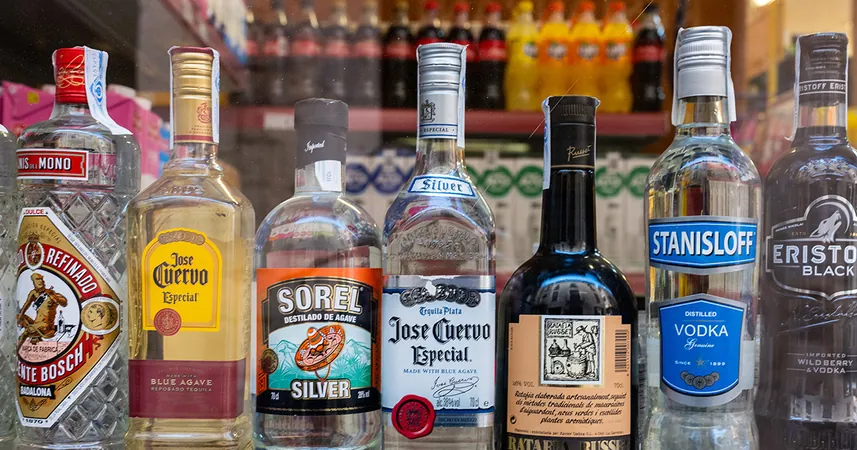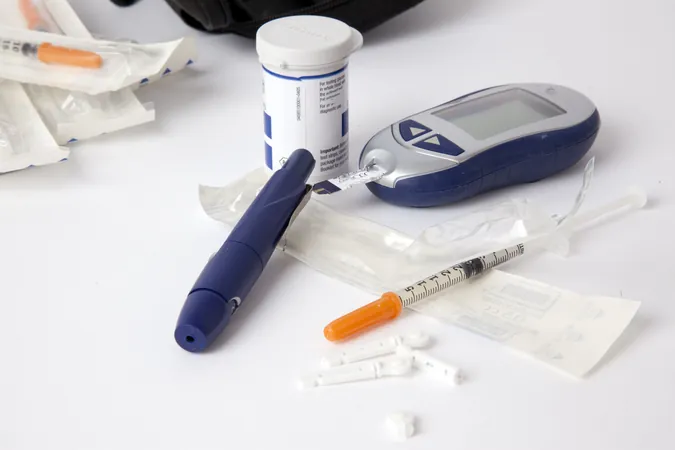
Shocking New Findings: Alcohol Consumption Linked to Cancer Risk
2024-09-21
Introduction
A groundbreaking report from the American Association for Cancer Research (AARC) has highlighted a significant yet often ignored risk factor for cancer: alcohol consumption. While cancer death rates in the United States have impressively declined by 33% between 1991 and 2021—resulting in about 4.1 million lives saved—there remains a troubling upward trend in certain types of cancer, particularly among adults under 50. These include breast, colorectal, and cervical cancers, raising alarm bells among health professionals.
The Impact of Lifestyle Choices on Cancer Rates
The precise reasons for this increase remain uncertain, with various hypotheses being considered—including environmental influences like microplastics. However, established research indicates that approximately 40% of all cancer cases in the U.S. stem from lifestyle choices—including tobacco use, diet, and physical activity.
Alcohol as an Underestimated Risk Factor
Alcohol, a common yet underestimated cancer risk, remains largely overlooked in the public consciousness. In 2019, the most recent year for which data is available, alcohol was attributed to about 5.4% of all cancers, equating to roughly one in every eighteen cases. To provide perspective, smoking currently accounts for about 20% of all cancer cases in the U.S., illustrating a stark contrast in public perception of risk.
Lack of Awareness
Disturbingly, awareness of the link between alcohol and cancer is alarmingly low. “Over 51% of people are unaware that alcohol increases cancer risk,” stated epidemiologist Jane Figueiredo from Cedars-Sinai Medical Center in Los Angeles, who contributed to the report. Furthermore, studies from the European Union suggest that awareness may be even lower on that side of the Atlantic.
Myths and Misconceptions
This lack of awareness can be partially attributed to persistent myths surrounding alcohol, including the misconception that moderate consumption of red wine offers heart health benefits. However, according to Figueiredo, any potential cardiovascular gains do not outweigh the associated cancer risks.
Mechanism of Risk
The primary mechanism through which alcohol elevates cancer risk involves DNA damage during digestion alongside disruptions to essential gut bacteria, with research indicating a subsequent increase in colorectal cancer risk. Additionally, early alcohol consumption has been linked to heightened cancer risk in later life.
Recommendations for Public Awareness
Despite these risks, occasional drinking may not be catastrophic. Rather, the critical issue lies in the general public's ignorance about these dangers. To combat this, the authors recommend implementing cancer-specific warning labels on alcoholic beverages—similar to those found on tobacco products—to enhance public awareness.
Future Projections
In a related note, projections suggest that by 2050, men's cancer-related deaths could surge by an astounding 93% globally, underscoring the urgent need for increased awareness and preventive measures in the realm of alcohol consumption and cancer risks.


 Brasil (PT)
Brasil (PT)
 Canada (EN)
Canada (EN)
 Chile (ES)
Chile (ES)
 España (ES)
España (ES)
 France (FR)
France (FR)
 Hong Kong (EN)
Hong Kong (EN)
 Italia (IT)
Italia (IT)
 日本 (JA)
日本 (JA)
 Magyarország (HU)
Magyarország (HU)
 Norge (NO)
Norge (NO)
 Polska (PL)
Polska (PL)
 Schweiz (DE)
Schweiz (DE)
 Singapore (EN)
Singapore (EN)
 Sverige (SV)
Sverige (SV)
 Suomi (FI)
Suomi (FI)
 Türkiye (TR)
Türkiye (TR)